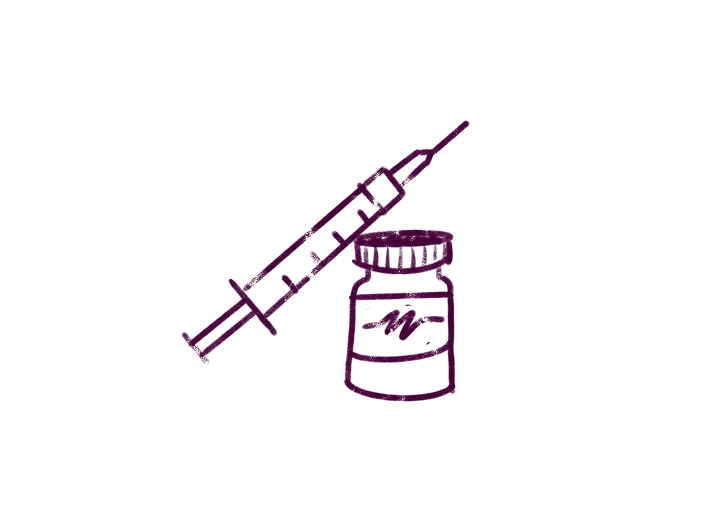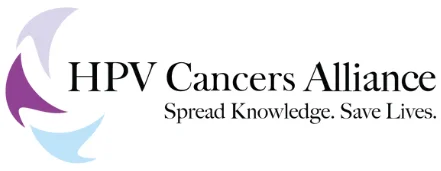HPV Q&A Myth Busters
Busted! Common HPV Myths Include:
"There is only one type of HPV and you will know when you have it"
a. Myth Buster Video by Dr. Judith Smith, University of Texas, McGovern Medical School
"When engaging in sexual activities, I always use a condom so I am protected from getting HPV"
a. Myth Buster Video by Dr. Judith Smith, University of Texas, McGovern Medical School
"I just found out that I have HPV. This is proof that my partner cheated on me"
a. Myth Buster Video by Dr. Stephanie Blank, Mt. Sinai Hospital, Obstetrics, Gynecology & Reproductive Science
"There are no proven clinical studies that nutritional supplements can help get rid of HPV infection faster"
a. Wrong! AHCC (Active hexose correlated compound) is a supplement derived from mushrooms that suppresses HPV. Learn more about AHCC here and in the Myth Buster Video by Dr. Judith Smith, University of Texas, McGovern Medical School
Myths about the HPV Vaccine...
"There is no evidence that the HPV vaccine is safe. The vaccine could be the cause of the virus or it could cause nerve damage issues, not being able to have kids and even cancer. Getting the vaccine is not worth these health risks"
a. Myth Buster Video by Dr. Aragones, Memorial Sloan Kettering Cancer Center
"If you did not get the HPV vaccine when you were a teenager, it is too late now. The vaccine will not be able to benefit you anymore"
a. Myth Buster Video by Dr. Aragones, Memorial Sloan Kettering Cancer Center
"The HPV vaccine only helps women and girls so there is no reason for men and boys to get it"
a. Myth Buster Video by Dr. Aragones, Memorial Sloan Kettering Cancer Center

Myths about Women & HPV...
"If I had a Pap smear examination two weeks ago and have not heard back from my gynecologist, I should not worry. This means everything is fine and I will be good until next year's exam"
a. Myth Buster Video by Dr. Stephanie Blank, Mt. Sinai Hospital, Obstetrics, Gynecology & Reproductive Science
"If my Pap smear exam came back normal, I definitely do not have an HPV-related cancer"
a. Myth Buster Video by Dr. Stephanie Blank, Mt. Sinai Hospital, Obstetrics, Gynecology & Reproductive Science
"Once I have gotten the HPV vaccine, I do not need to get an annual pap smear test anymore"
a. Myth Buster Video by Dr. Stephanie Blank, Mt. Sinai Hospital, Obstetrics, Gynecology & Reproductive Science
"I do not need to worry about getting an annual pap smear test because I have been having sexual activities with the same partner for years"
a. Myth Buster Video by Dr. Stephanie Blank, Mt. Sinai Hospital, Obstetrics, Gynecology & Reproductive Science
"My husband and I both have HPV, which means I must of given it to him because men cannot pass it to their partners, only women can"
a. Myth Buster Video by Dr. Stephanie Blank, Mt. Sinai Hospital, Obstetrics, Gynecology & Reproductive Science
For Parents! Harmful Myths to Avoid to Protect your Children...
"My children do not need to be vaccinated until they become sexually active, so I can wait until they are late teenagers"
a. Myth Buster Video by Dr. Fatma Levent, Advent Health Medical Group
"The HPV vaccine is only meant for girls, so I do not need to vaccinate my son"
a. Myth Buster Video by Dr. Fatma Levent, Advent Health Medical Group
"If I vaccinate my kids earlier, they will start having sex earlier and I do not want to encourage that behavior"
a. Myth Buster Video by Dr. Fatma Levent, Advent Health Medical Group
"I did not vaccinate my children when they were in their earlier teenage years and now they are older and sexually active. It's too late to vaccinate them now"
a. Myth Buster Video by Dr. Fatma Levent, Advent Health Medical Group
"I do not need to ask my pediatrician about the HPV vaccine, they will tell me if my kids need it"
a. Myth Buster Video by Dr. Fatma Levent, Advent Health Medical Group

Myths about HPV & Cancer...
"HPV causes cancer by entering into your cells quickly, making them grow uncontrollably"
a.Myth Buster Video by Dr. Paul Romesser, Memorial Sloan Kettering Cancer Center
"If a person has HPV, then that means the only cancer they have to worry about is cervical cancer, the other HPV-associated cancers are rare and can be cured"
a. Myth Buster Video by Dr. Paul Romesser, Memorial Sloan Kettering Cancer Center
"The cause of “HPV-related” cancers is unknown, there is no real proof that HPV causes it"
a.Myth Buster Video by Dr. Paul Romesser, Memorial Sloan Kettering Cancer Center
"Men do not need to worry about HPV-related cancers, only women do as it only affects them"
a. Myth Buster Video by Dr. Paul Romesser, Memorial Sloan Kettering Cancer Center
"Are there any differences in how HPV-related cancers, such as cervical cancer, affect people of color or those with less money compared with the rest of the population?"
a.Myth Buster Video by Dr. Shannon Christy, Moffitt Cancer Center
Myths about Anal Cancer...
"If my rectal area is bleeding, it must be hemorrhoids which I do not need to worry about"
a. Myth Buster Video by Dr. Anne Lin, UCLA School of Medicine
"A digital rectal exam (DRE) that is used to examine rectal issues is painful and I do not need to do it"
a. Myth Buster Video by Dr. Anne Lin, UCLA School of Medicine
"If I had a colonoscopy within the last two years, I do not need to worry if I have rectal bleeding"
a. Myth Buster Video by Dr. Anne Lin, UCLA School of Medicine
"Anal cancer is so rare that I do not need to worry about getting it, there are no risk factors"
a. Myth Buster Video by Dr. Anne Lin, UCLA School of Medicine

